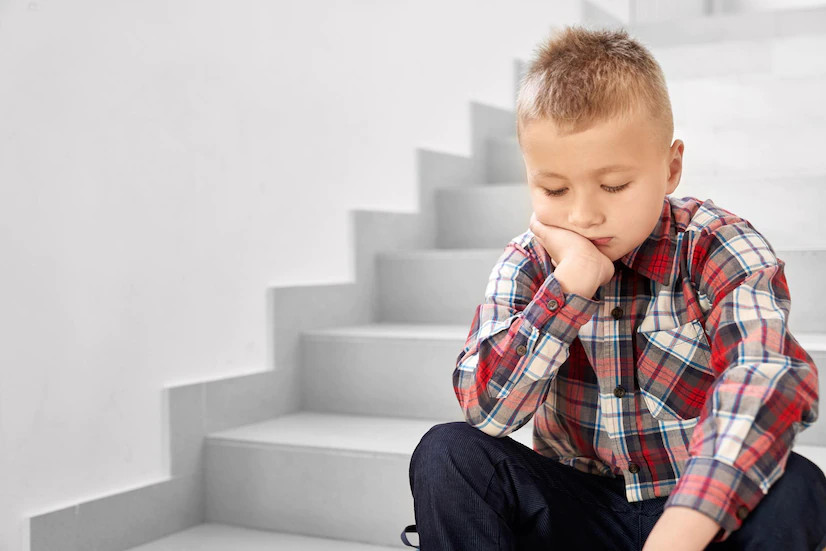Bullying, also known as harassment, encompasses negative behaviors like physical actions, verbal abuse, exclusion, or demeaning someone. It can manifest in various settings, including workplaces, families, schools, and online platforms (cyberbullying).
The consequences of bullying are significant for both the victim and the perpetrator. It can result in physical harm or emotional distress for the victim and may even have enduring adverse effects on their health.
The long-term effects of bullying
Bullying is a serious issue that can have negative impacts both physically and emotionally, including:
Mental health issues
Bullying victims face a heightened risk of developing mental health challenges like depression, anxiety, eating disorders, feelings of helplessness, and despair as a result of the bullying they endure. In severe cases, they may even develop post-traumatic stress disorder (PTSD).
PTSD is a significant mental health issue that can arise following traumatic experiences, including bullying. As negative emotions build up, these issues can evolve into mental health disorders.
The impact of PTSD can vary among individuals, with symptoms sometimes not becoming apparent immediately and only surfacing months or even years after the traumatic event.
Signs of PTSD in children may include:
- Difficulty remembering the sequence of events when trying to recall traumatic memories
- Repetitive reliving of traumatic events through images, drawings, or play
- Feelings of guilt that they could have prevented it from happening
- Experiencing nightmares
- Easily becoming angry or irritable
- Persistent sadness or fearfulness
Signs of PTSD in teenagers may include:
- Repeated memories or thoughts of the traumatic event
- Feeling that the event will happen again
- Avoiding people or places that remind them of the bullying incident
- Easily angered or offended
- Easily startled
- Self-blame
- Isolating oneself and cutting off relationships with others
- Difficulty experiencing positive emotions
- Always avoid risky situations or behaving in a risky manner
Low self-esteem
One of psychological impacts is low self-esteem. Someone who continuously experiences bullying may develop negative feelings about themselves and begin to believe negative words or actions directed at them. Eventually, they start to have low self-esteem and feel that they are not good enough.
The impact of low self-esteem can affect various aspects, including social relationships, academic or work performance, as well as emotional well-being. Individuals with low self-esteem may feel less confident, thus affecting their potential.
Repeating the cycle of bullying
Bullying can become a recurring cycle, where victims may become aggressors in the future. This can occur because victims of bullying may internalize behaviors and thought patterns they have experienced and then apply them to others.
This cycle is extremely damaging because it can form an unbroken chain. To help victims realize that what they are going through should not be accepted by others, it is imperative to increase awareness of the negative effects of bullying.
How to prevent bullying in schools
There are many cases of bullying that occur in schools, and this needs to receive better attention from both parents and schools. To prevent bullying in schools, you can do the following:
- Teaching children about healthy friendships
- Recognizing signs when a child is experiencing bullying
- Promoting healthy habits, especially in giving constructive criticism or engaging in healthy jokes, without shouting or violence
- Understanding school rules regarding bullying
- Reporting bullying incidents experienced by a child at school and discussing with the class teacher and parents ways to address it
Children and teenagers may struggle to cope with the bullying they have experienced. If there are signs of PTSD in a child, promptly help the child receive therapy and counseling from a doctor or psychiatrist.
If you need medical advice or consultation, you can either visit a doctor or make use of the consultation features that are available in the Ai Care application by downloading the Ai Care application from the App Store or Play Store.
Looking for more information about pregnancy, breastfeeding, and the health of women and children? Click here!
- Sean Edbert Lim, MBBS
MentalHelp.net. The long-term effects of bullying. Available from: https://www.mentalhelp.net/abuse/long-term-effects-of-bullying/
American Psychological Association. Bullying. Available from: https://www.apa.org/topics/bullying
Michelle Risser, LISW-S (2023). Can Someone Develop PTSD From Bullying. Available from: https://www.choosingtherapy.com/ptsd-from-bullying/
R. Ayoub et al. (2021). The relationship between self-esteem and bullying behavior among adolescent in tunisia. Available from: https://www.cambridge.org/core/journals/european-psychiatry/article/relationship-between-selfesteem-and-bullying-behavior-among-adolescent-in-tunisia/669189DA63ED462EC9A986DBDC302D2F
Sherri Gordon (2020). 10 Ways to Prevent School Bullying. Available from: https://www.verywellfamily.com/ways-to-prevent-school-bullying-460755











